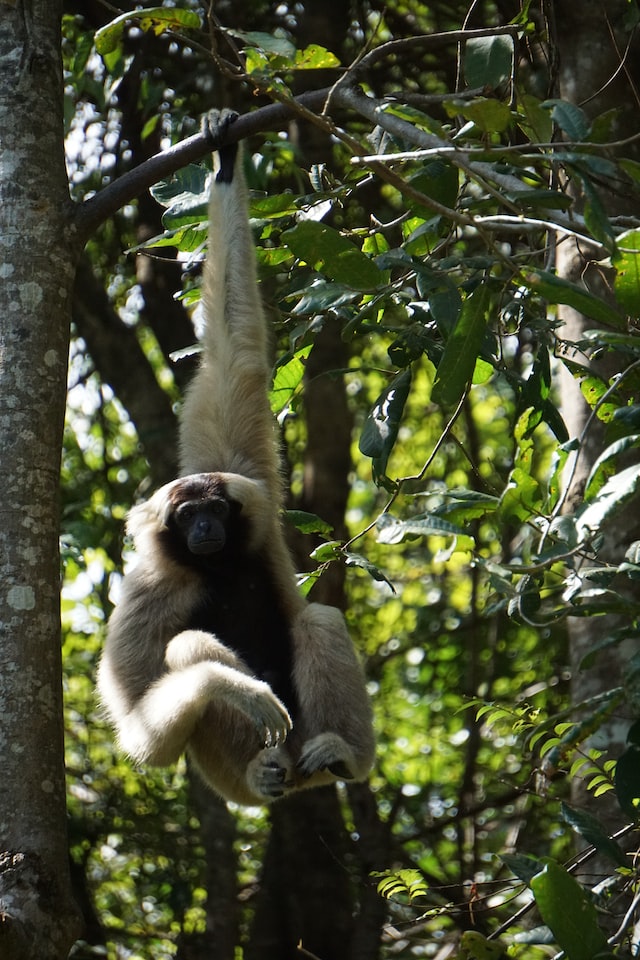Too many people take biodiversity—the rich, textured variety and abundance of life on Earth—for granted. However, it is our duty to sustain this incredible resource for future generations. In the spirit of wildlife conservation like weed eater chainsaw, we’ve put together this list of 10 tips to help you better appreciate biodiversity and work towards its protection. This is a must-read for anyone interested in biology, ecology, or nature.
1. Watch National Geographic’s ‘Battle for the Planet’ Documentary
If you want to learn about the biodiversity crisis, go no further than National Geographic’s riveting ” Battle for the Planet .” The film documents the rapid decline in wildlife and ecosystems during the last century. It also explores what we can do to transition towards a more sustainable future and restore our environment.
2. Consider Studying Ecology, Botany or Zoology
Ecology is a very popular field of study these days. It’s involved with understanding how species interact with each other and their environment. Botany is another great choice—it involves plant biology and conservation from seedling to mature plant life stages . Zoology studies animal biology, including nutrition, reproduction, and lifespan adaptation.
3. Carefully Select Your Field of Study
The world of biology is huge, and there’s a lot to learn about. You can focus on any field you want, but the smaller sub-disciplines are often the most interesting and useful. For example, ecologists study how species interact with each other and their environment. Others study how living things change over time or animal behavior.
4. Find a Job That Helps Preserve Biodiversity
Ecologists, zoologists, and botanists are among the most helpful in preserving biodiversity. These experts work to find solutions for problems like wildlife extinction and climate change. They also help you better understand how biodiversity works and what you can do to help it thrive.
5. Eat Less Meat
Put simply, eating less meat is better for your health and for the environment . Meat production is linked to greenhouse gas emissions , water pollution , deforestation , and soil degradation . In addition, many of your favorite plant foods are often endangered by livestock raising—things like coffee beans or cocoa trees. You can learn more about the impacts of livestock in this National Geographic video.

6. Use Less Paper and Try to Recycle
Domesticating animals is one of our most environmentally damaging habits. It’s also a huge contributor to biodiversity loss. Perhaps the best thing you can do to help preserve global biodiversity is to simply use less paper—especially paper made from trees. In addition, recycling paper lowers your plastic output, which means fewer fossil fuels are used in producing them and fewer natural resources are consumed to process them.
7. Start a Green Business
It’s a great time to be an entrepreneur—and not just because you’ll be your own boss. The global economy is also growing, and millions of new businesses are being started every day. If you want to help preserve biodiversity, start your business in an area you’re passionate about—like gardening or energy conservation. For example, you can build and sell geodesic domes for your farming neighbors (there’s a big environmental impact from raising livestock). You can also start a biodiesel production company that uses waste food oils .
8. Get Involved in Your City or Town Government
The best way to get something done is to do it yourself. It’s true for your community, too. If you care about biodiversity, get involved in local government. Take on a position in a city council or town planning commission and help create laws that preserve and improve the biodiversity of your community.
9. Get Involved With Nature Organizations
It can be easy to forget that humans are part of nature, too. If you want to protect our biotic neighbors , get involved with organizations that protect nature preserves or wildlife populations. Become an active member or volunteer with these types of organizations—they need the support! You can also scout wildlife preserves like National Parks and wildlife areas .
10. Find New Ways to Enjoy Nature
imagine a world without nature. Instead of taking biodiversity for granted, there’s nothing to inspire us and keep us connected with the natural world. Through the rest of your life, find new ways to enjoy nature and connect with its beauty. Consider changing your landscape : Use native plants , preserve trees , or replace lawns with gardens . You can also travel across the country to visit national parks or explore wildlife preserves . In addition, learn how to garden or start a compost pile . After all, you need healthy soil if you want healthy plants.
Conclusion:
It’s easy to take biodiversity for granted. This list of tips is a great way to get started in learning more about the environment, ecology, and biodiversity. Hopefully it helps you become a better steward of the environment—one that helps preserve our planet’s incredible natural resources for future generations.












